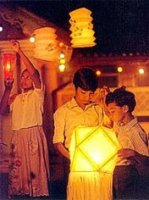VESâKHA

Vesàkha is the second month of the Buddhist calendar, Vesak being the Sinhalese pronunciation. According to Theravàda tradition, Siddhattha Gotama was born, became enlightened and passed away on the full moon eve of the month of Vesàkha, although this is not mentioned anywhere in the Tipiñaka. According to the scriptures, while the Buddha was staying at Vesàli he said that he would pass away in three months time (ito tiõõaü màsànaü, D.II,114). As he did not leave Vesàli until the end of the rainy season (mid-October), he would have passed away no later than mid-January.
When the Chinese pilgrim Xuanzang was in India in the 7th century, he found that while most Buddhists celebrated the Buddha's birth, enlightenment and passing on Vesàkha, some sects did so at other times. He wrote: `According to the general tradition, the Tathàgata was 80 when, on the 15th day of the second half of the month of Vesàkha, he attained final nirvana But the Sarvàstivàdins say he died on the 8th day of the second half of the month of KattikaThe Bodhisattva was born on the 8th day of the second half of the month of VesàkhaBut the Sàvaka school say that it was the 15th day of the second half of Vesàkha.'
In Theravàdin Buddhist countries, Vesàkha is a public holiday and on that day people flock to temples to hear sermons, practise meditation and honour the Buddha with various ceremonies. See Kusinàrà and Travels, The Buddha's.